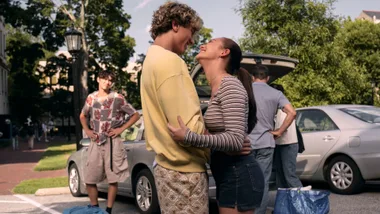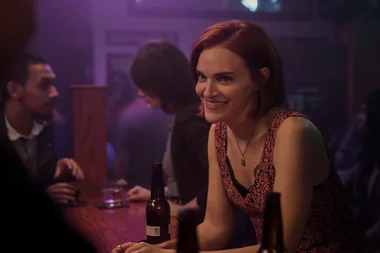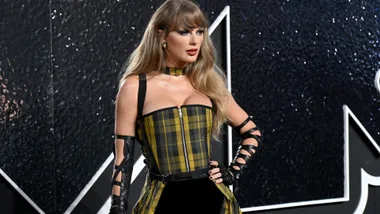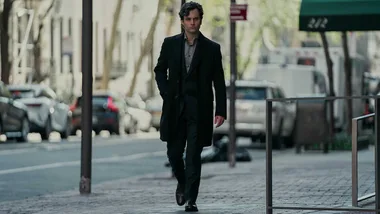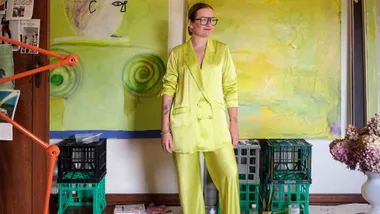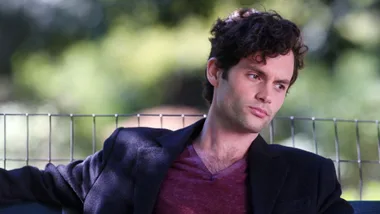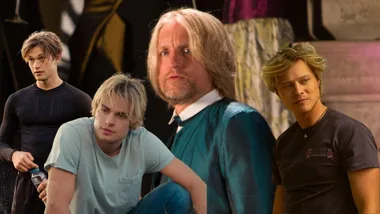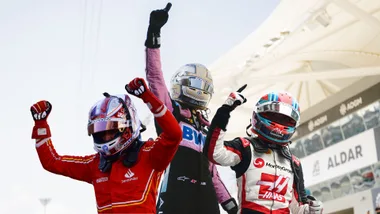The paparazzi are crouched on an unassuming street corner in downtown Los Angeles, poised like panthers waiting to pounce on their prey. Click click. Here comes Kourtney Kardashian in boyfriend jeans and a black crop top, a tiny Louis Vuitton backpack slung over one shoulder. She greets a hooded male figure, Justin Bieber, who’s doing his best ’90s dad impression in baggy Hawaiian boardshorts and box-fresh Nike Air Max sneakers. Click click. Kendall Jenner emerges from a black SUV, every bit the off-duty supermodel in a slinky nude knit dress. She’s followed by actor Chris Pratt, singer Selena Gomez and big-name US basketballer Kevin Durant.
It’s pure paparazzi gold, a melange of celebrities so eclectic one can only assume they’re off to an Oscar’s after-after-party or mega pop concert. But on this balmy Sunday afternoon in the gritty city centre, the Kar-Jenners and co are going to church.
Over the past 50 years, organised religion – particularly Christianity – has been declining in the Western world. Shocking child sex abuse scandals have shattered the faith of many lifelong Catholics, while a shift away from community groups in general has seen participation dwindle. Others have been put off by conservative Christian views on homosexuality and abortion, with some choosing to pursue their own strand of spirituality over a traditional denomination. In Australia’s 2016 census, more respondents identified as having no religion than as Catholic, with the proportion of Christians dropping from an all-time high of about 97 per cent in 1921 to just 52 per cent today.
Yet in one small but powerful (and prosperous) subculture, Christianity is surviving and thriving: Hollywood. Not that the rich and famous are attending your grandma’s typical Sunday service. Here at the Belasco Theater in LA, a state-of-the-art auditorium rather than chapel, they’ll join 1000 other worshippers for an hour of pulsating pop-rock hymns courtesy of Hillsong Church. Away from the clicking shutters of the paparazzi, they’ll sing, dance, pose and pout – selfies and Snapchat are allowed, even encouraged, in this cool-kid congregation. In fact, the pastors here are influencers in their own right, many boasting hundreds of thousands of followers on social media.
Hillsong (formerly the Hills Christian Life Centre) was founded in the north-west suburbs of Sydney in 1983, and has since ballooned into an evangelical empire. More than 100,000 people in 21 countries attend the Pentecostal church each week, which – with its chart-topping Christian anthems and global “conferences” (think a rock concert meets TED talk) – seems purpose-built for young people.
Young people like troubled pop star Bieber, circa 2014. As the story goes, the then-20-year-old moved in with Hillsong pastor Carl Lentz following a public downward spiral and struggles with substance abuse and sex addiction (oh, and urinating into a mop bucket, then screaming “Fuck Bill Clinton!” at a New York nightclub). “I want to know Jesus,” the pop star reportedly sobbed to the pastor, leading to a bizarre religious ceremony that saw the singer baptised in the bath of NBA player (and fellow Hillsonger) Tyson Chandler. Bieber became a believer, and he’s flaunted his faith ever since, escorting a steady stream of girlfriends to the church, including his now-wife, model Hailey Bieber (nee Baldwin). “The common denominator [in our relationship], I promise you, is always church,” she said in an interview last year.
Other A-listers seek spiritual enlightenment through a more individualistic lens. Rapper-slash-designer-slash-self-proclaimed genius Kanye West has long littered his work with divine references, from songs “Jesus Walks” and “Father Stretch My Hands” to his sixth studio album, Yeezus (the title soon became a moniker for the star). “I think any time the word ‘Jesus’ can be used more in our lives … it’s a good thing,” he said in 2013. “So even if it’s the title, Yeezus, what I say is like, with my heroes … People wanna be like Mike [Michael Jordan], I wanna be like Christ.”
Earlier this year, West launched his Sunday Service, an invite-only prayer circle that’s welcomed the likes of Katy Perry, Orlando Bloom, David Letterman, Courtney Love and Diplo. Each week, devotees gather in a different location – the sun-dappled Hollywood Hills or West’s Calabasas basement lit up in nightclub neon – for a gospel-cum-rap jam session. Attendees are believed to sign non-disclosure agreements, though it seems they’re free to broadcast the star-studded fanfare on Instagram.
Which is just as well, as the services are a visual feast. The choir members come dressed in carefully coordinated ensembles (beige sweats one week, white robes the next), no doubt creatively directed by their fearless leader. Though the fact they’re sporting head-to-toe Yeezy (West’s clothing line) has some pondering if the rapper has duped us all and this is really just a shrewd Fashion Week teaser or album activation. Others proffer that West is starting his own church, which isn’t outside the realm of possibility. In 2009, his mother-in-law Kris Jenner co-founded California Community Church, a non-denominational congregation with $1400 monthly membership fees. Its tinkling hymns can still be heard in the mansion-strewn mountains of Agoura Hills today.
But what would be the founding philosophy of this alleged Church of Kanye? West’s reality-star wife Kim Kardashian – a savvy communicator accustomed to putting out her husband’s fires – remains a little tight-lipped. “[The Sunday Service] is a healing experience – it’s just a musical experience that is pretty moving. There’s actually no praying, there’s no sermon, there’s no word, it’s just music and it’s just a
feeling,” she told Jimmy Kimmel on his talk show in April. “But it’s Christian,” interrupted her sister Kourtney, the most outwardly religious Kardashian, whose social media feeds are scattered with bible verses and nude selfies in equal measure. Kim’s nervous laugh and steady gaze said it all: this flashy, celebrity-fronted brand of faith may be riddled with contradictions.
American journalist Lea Ceasrine was 18 when a friend suggested she join him at Hillsong in New York to help with some mental health issues. She’d grown up attending Roman Catholic church, but by college she considered herself more spiritual than religious. Walking into Irving Plaza Theatre for the first time, she recalls, was like being thrust into a mosh pit of heaving hipsters. “Hillsong was full of young people like me. It didn’t feel like any church setting I’d ever been in,” she explains. High-octane music and arm- waving aside, what soon became apparent to Ceasrine was the aspirational wealth and elitism within the church. “Pastors would flaunt status symbols and wear trendy clothing,” she says.
Traditionally, a pastor lives a life of modest means, or even – by virtue of choice – poverty. This is not a tenet of the modern mega-church (as well as Hillsong, there’s Zoe, Vous and Churchome), where religious leaders team their skinny jeans with gold chains and Gucci. The Instagram account @PreachersnSneakers documents the pastors in their pumped-up kicks, some worth a cool $7000, calling them out for living luxuriously on their congregation’s coin. Today, tithing – giving a percentage of one’s income to God via the church – can be conveniently administered through an iPhone app.
“Hypocrisy has always been present in the operations of organised religion – it isn’t an accident that the Vatican boasts so much beautiful art and architecture,” says Dr Lauren Rosewarne, social scientist and pop-culture expert at The University of Melbourne. “Modern faiths have extended this, and in recent years there’s been an emergence of highly capitalist churches where faith and money are united.”
For Ceasrine, it was this focus on “fame over faith” that spurred her to leave Hillsong after nearly two years. Other former members have pointed to the organisation’s backward culture of sexism and homophobia, concealed behind cool streetwear.
“Hillsong church welcomes ALL people but does not affirm all lifestyles. Put clearly, we do not affirm a gay lifestyle,” wrote the church’s founder Brian Houston in a 2015 blog post. Such values seem at odds with Christianity’s new target market of progressive millennials and liberal-leaning Hollywood. Which could raise the question: why is the Academy Awards an annual “Thank the Lord” faith fest? The concentration of uber-wealthy churchgoers is probably no coincidence, says Rosewarne. “I imagine that some very, very rich people are looking for divine justification for their good fortune, and religion provides this,” she says. “The idea of wealth being ‘destined’ rather than a result of luck makes them feel more entitled to their riches.”
But in 2019, it’s about more than just being #blessed. Christianity is part of Bieber and company’s personal brands, something we haven’t seen since Tom Cruise spruiked Scientology or Madonna’s brush with Kabbalah. And while those two A-listers were widely viewed as eccentric and kooky, today’s churchy set are the “popular group” of It-girls, pop idols and athletes. Perhaps this reflects the changing face of celebrity. In the ’80s, ’90s and early noughties, we celebrated bad-boy rockers, hard-partying models and actresses gone rogue. These days, in an age of moral (and viral) outrage, the squeaky-clean celeb comes out on top. Especially if she goes to Bible studies.
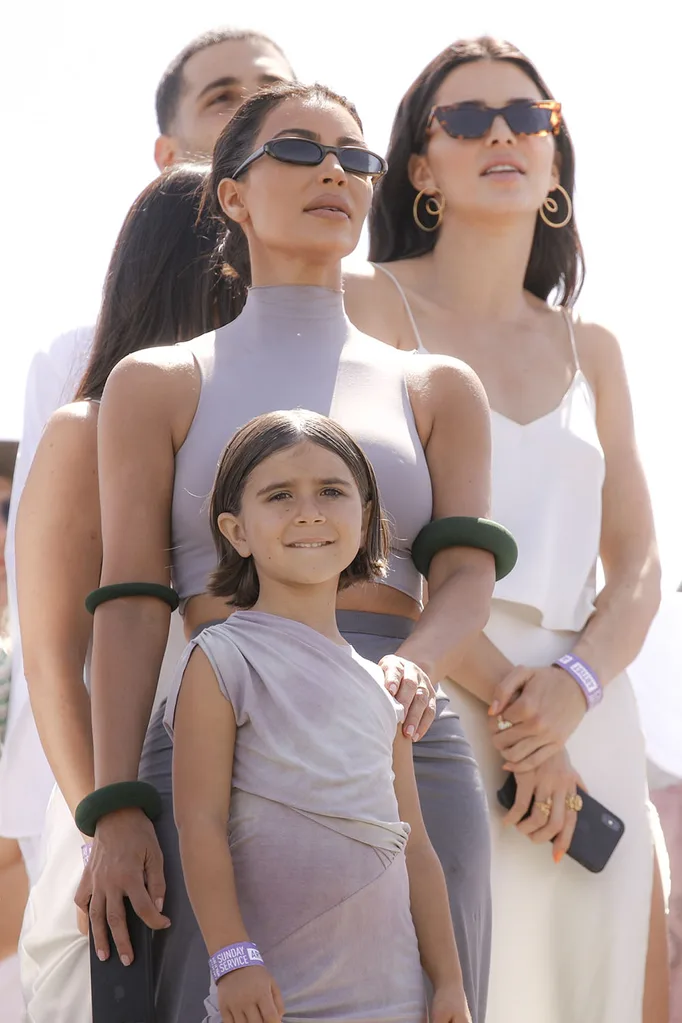
Add to that the fact that today’s stars have more reach, power and influence than ever before, and religion may be an important reminder that there’s something bigger than themselves out there.
Or is there?
On Easter Sunday this year, Kanye West and his crew descended on Coachella. Earlier, rumours swirled that the rapper was set to headline the festival but organisers wouldn’t meet his demands for an extravagant, dome-shaped set. Instead they made a last-minute announcement that he would be hosting a Sunday Service in the desert. As the hot morning sun blared down, he took to a manufactured mountain top with his gospel choir, all dressed in mauve (official merchandise splashed with slogans such as “Trust God” was available for purchase). The music was soul-stirring, the mood was rousing – after a prayer led by rapper DMX, West broke down in tears, embraced by his fellow performers – and his faithful fans were out in force.
But one thing remained a mystery. Who exactly were they praying to? Jesus or Yeezus?

